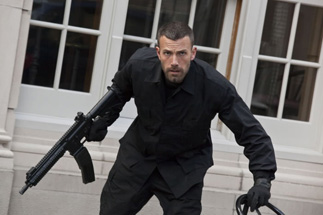|
|
Book vs. Movie: The TownBy Russ BickerstaffSeptember 22, 2010
The final heist - the one that takes place at Fenway Park - makes it to the screen relatively intact, but without a deep enough romance between Doug and Claire, it lacks the dramatic impact of the novel. In the novel, Claire has discovered that Doug is a bank robber and has cast him out of her life. Ditto for the movie, but in the book, he tells her about the Fenway Park job - letting her know all the details. She can turn him in if she wants, but if she doesn’t, they can run away together and he’ll leave the criminal life for good. The Fenway Park job still has a great deal of impact, but the book ends in a drastically different way. Without a deeper romance, Doug’s death would seem kind of pointless, so he simply runs away and leaves all his money with Claire, knowing that he’ll probably never see her again. Doug comes across a lot more sympathetically here. True, Affleck may have been doing this simply in the interest of playing more likeable character, but the ending does fit the adaptation. The Verdict The book’s balance between romance and action - realism and fantasy sets it apart from other crime dramas. The film pries away many of these dichotomies from the story. And while it lacks the kind of depth that the book has, even the book’s depth isn’t terribly inspired to begin with. The film isn’t missing anything that was terribly integral to the book. The film tells a solidly entertaining story filmed in and around the Boston area in which the story is set. It’s always nice to see a big budget film that wasn’t shot in Toronto or Southern California. Novels don’t have such limitations, so even the story’s local flavor isn’t quite as much of a novelty as it is in the film. As a result, the film is destined to be remembered far better than the book. The look and feel of Boston make The Town a much more memorable realization of the story.
[ View other columns by Russ Bickerstaff ]
[ View other Book vs. Movie columns ]
[ Email this column ]
|

|
|
|

|
Friday, November 1, 2024
© 2024 Box Office Prophets, a division of One Of Us, Inc.


